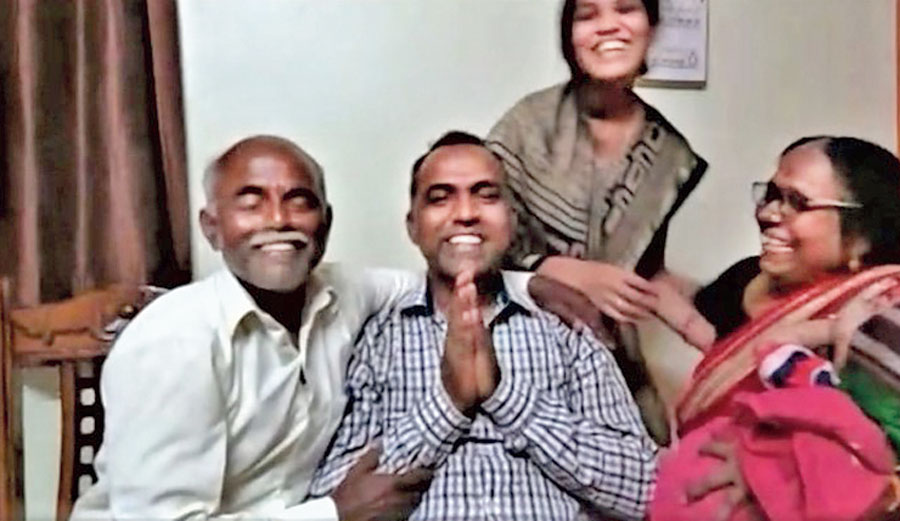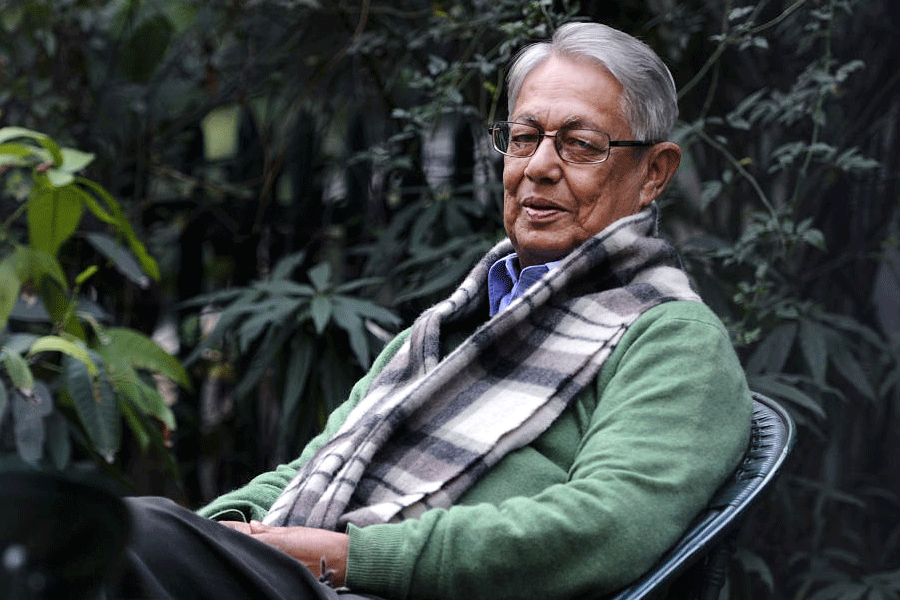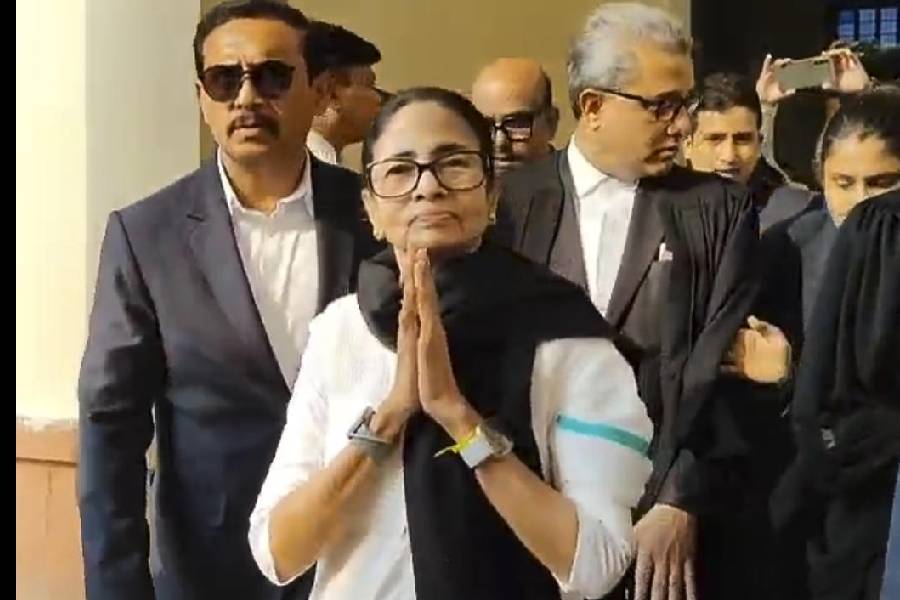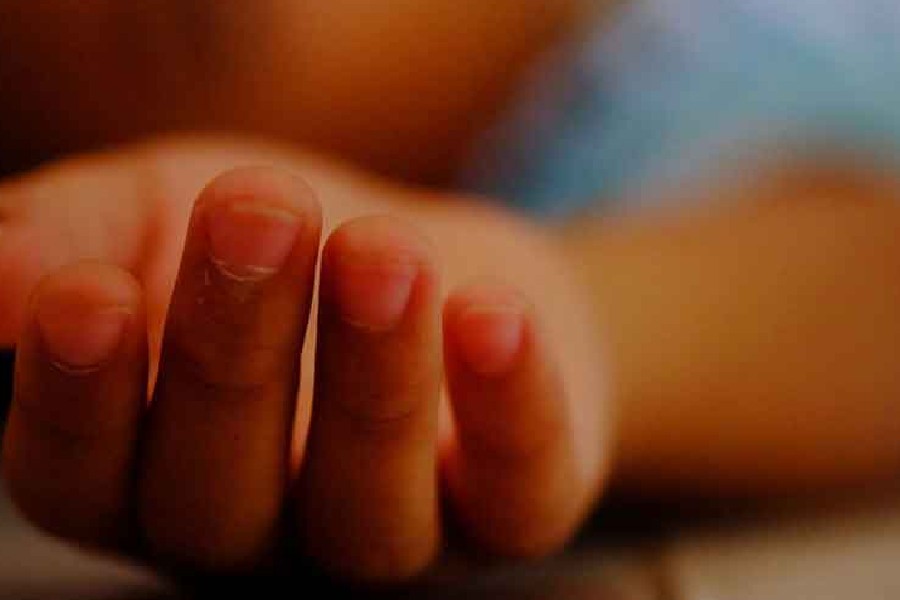British broadcasting celebrity and all-round intellectual Stephen Fry normally presents the Bafta film awards, with barbed jokes aimed at self-important Hollywood stars hogging front row seats.
But there was none of that on Thursday when he announced that Ranjitsinh Disale, a 31-year-old from Maharashtra, was the winner of the $1-million “Global Teacher Prize 2020”.
Speaking from the Natural History Museum in London in a virtual ceremony, Fry fetched the customary sealed envelope from his inside pocket and read: “The winner of the Global Teacher Prize 2020 is Ranjit Disale from India.”
Fry, who read English at Queens’ College, Cambridge, could not resist displaying his classical education, declaring: “I can hear the voice of my Latin teacher from a very different age that you are primus inter pares -– first among equals.”
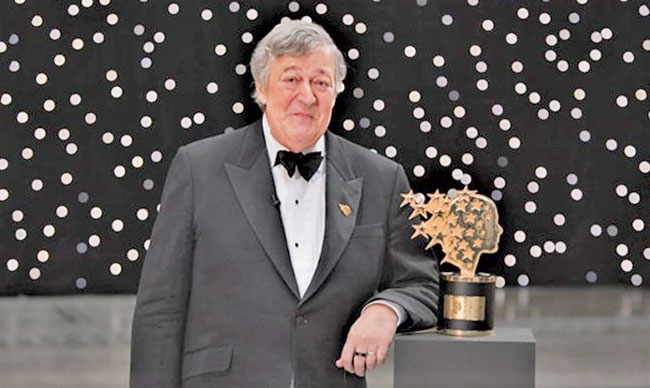
Fry during a video call with Ranjitsinh Disale Credit: Varkey Foundation
That was after Fry had been taken aback when Disale revealed he should share half his prize money with the other nine shortlisted teachers.
To well-read cricket fans, the event would have brought together two famous names from the game’s Golden Age. K.S. Ranjitsinhji (Ranji) and C.B. Fry, among the best batsmen of their time, had during their stint with Sussex in the 1890s and 1900s been known as much for their friendship as for the skill with which they put bowlers to sword.
It’s just a coincidence that C.B. Fry’s son, a first-class cricketer himself, was named Stephen Fry.
The Global Teacher Prize, founded by Indian “education philanthropist” Sunny Varkey in 2014, in partnership with Unesco, “was set up to recognise one exceptional teacher who has made an outstanding contribution to the profession as well as to shine a spotlight on the important role teachers play in society”.
This year Disale was judged best in class after he had beaten 12,000 nominations from 140 countries. The panel appeared impressed that he doesn’t follow a Hindutva agenda nor teach nonsense about Indian transplant surgery or flying saucers from before the dawn of history.
Disale was hugged by his elderly parents after Fry had declared him the winner in a live ceremony.
“(It would) be an absolute privilege if I could conduct the first interview with you as the winner of this prestigious award,” Fry began.
“First, you have chosen to share half of this million-dollar prize with your top ten finalists? That was an extraordinary, generous thing to say you are going to do. Can you say why exactly you have chosen to do that?”
Even in a cynical age, Disale’s answer reflected possibly the best of India.
“Because I believe if I share this prize money with nine-ten teachers it means I can scale up their work,” Disale said. “I’m same among the equals. If I share the prize money with the rest of my teachers, they will get a chance to continue their work. We can reach out and lighten the lives of many students as we can.”
After the Latin bit, Fry commended Disale: “That is a very beautiful thing to say.”
Asked how he intended to spend his share of the prize money, the first part of Disale’s reply was not controversial. He would give some of the money to other teachers for their “innovations”.
The second part of his reply may not go down too well with the BJP. Disale replied he would work for “peace across conflicted countries, like India-Pakistan, Israel-Palestine, Iraq-Iran. I want to form the peace army of 50,000 students by 2030 – I now have 18,000.”
Fry seemed genuinely moved: “How lucky your students are to have you as a teacher.”Disale is said to have “transformed” the life chances of young girls at the Zilla Parishad Primary School, Paritewadi, Solapur, Maharashtra.
When he first arrived in 2009, he was confronted with “a dilapidated building, sandwiched between a cattle shed and a storeroom. Most of the girls were from tribal communities where school attendance could sometimes be as low as 2 per cent and teenage marriage was common.”
The organisers said: “Ranjitsinh was determined to turn this around, moving to the village and going to great efforts to learn the local language. Ranjitsinh then not only translated the class textbooks into his pupils’ mother tongue (Kannada)… (he gave the) students access to audio poems, video lectures, stories and assignments.
“The impact of Ranjitsinh’s interventions has been extraordinary: there are now no teenage marriages in the village and 100 per cent attendance by girls at the school. The school was also recently awarded the best school in the district with 85 per cent of his students achieving ‘A’ grades in annual exams. One girl from the village has now graduated from university, something seen as an impossible dream before Ranjitsinh arrived.”

